Text
You're still tossing slurs around. Which ain't a good witness.
“And when you pray, do not be like the hypocrites, for they love to pray standing in the synagogues and on the street corners to be seen by others. Truly I tell you, they have received their reward in full. But when you pray, go into your room, close the door and pray to your Father, who is unseen. Then your Father, who sees what is done in secret, will reward you."
-Jesus, as recorded in Matthew 6:5-6, New International Version
Any Christian will have seen those verses, will have read them dozens of times, because further down the page - just three verses later! - is the Lord's Prayer, one of the best known and most quoted sections of the Bible.
This means that if you see a Christian praying in public, at a flagpole or at a restaurant or at a rally or at a government meeting, they know they are violating Jesus's express command. They have decided that what they gain from the performance of prayer is more important to them than following the teachings of their faith, the words of their God's son.
And when they demand that their prayer and only their prayer be allowed in or encouraged by public spaces, they have decided that their right to oppress others is more important than their submission to God.
Feel free to remind them of that.
166 notes
·
View notes
Text
Under Jewish law, human life begins not at conception nor at heartbeat, but at the first breath. Given that Jesus had no problem calling out where He thought Jewish law failed - see the entirety of the Sermon on the Mount - and that abortion was, as I said before, common in the First Century, I have no doubt that, if He thought that was an error egregious enough that Christians should build their entire political identity around it, He would have mentioned that.
But wait. There's more. There is actual Scriptural proof that abortion isn't murder.
It's in the Mosaic law. First, we have the penalty for causing a woman to miscarry. You see, the penalty for murder is death (Numbers 35:18-34), but the penalty for striking a woman and causing her to miscarry is a fine (Exodus 21:22-25). That indicates that what has happened is a loss of property (the fetus) rather than murder.
Then there's the big one - that moment when God commands that an abortion take place. It's in Numbers, 5:11-31. When a man suspects his wife of adultery, she is brought to the priests and an intricate ritual involving an abortion drug is performed, and, if she did commit adultery, the fetus is aborted. This is God, literally commanding abortion. So unless God is commanding sin, abortion ain't murder.
“And when you pray, do not be like the hypocrites, for they love to pray standing in the synagogues and on the street corners to be seen by others. Truly I tell you, they have received their reward in full. But when you pray, go into your room, close the door and pray to your Father, who is unseen. Then your Father, who sees what is done in secret, will reward you."
-Jesus, as recorded in Matthew 6:5-6, New International Version
Any Christian will have seen those verses, will have read them dozens of times, because further down the page - just three verses later! - is the Lord's Prayer, one of the best known and most quoted sections of the Bible.
This means that if you see a Christian praying in public, at a flagpole or at a restaurant or at a rally or at a government meeting, they know they are violating Jesus's express command. They have decided that what they gain from the performance of prayer is more important to them than following the teachings of their faith, the words of their God's son.
And when they demand that their prayer and only their prayer be allowed in or encouraged by public spaces, they have decided that their right to oppress others is more important than their submission to God.
Feel free to remind them of that.
166 notes
·
View notes
Text
Quantum phase change.
Reblog if you're autistic and if you've had/still have any of these disproportionate fears, or add your own:
-Yellowstone exploding
-Black holes
-A really specific venomous organism that only lives in a specific location that's nowhere near where you live
-Cyanide
-Those wasps that turn bugs into zombies
-Brain eating amoeba
-Radiation
940 notes
·
View notes
Text
Artwork gunpla.
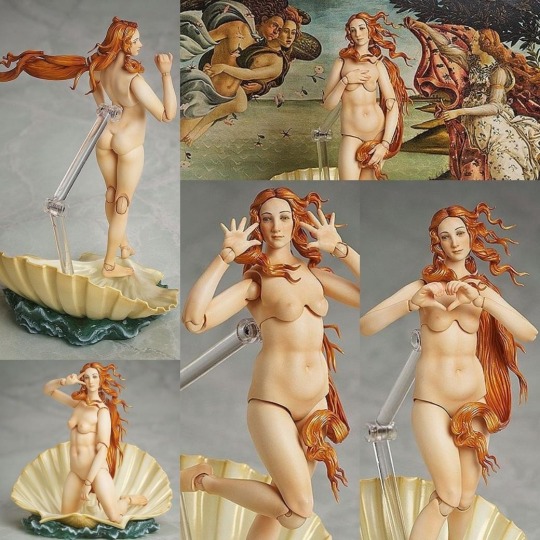
The Birth of Venus by Botticelli figure/bjd
Part of The Table Museum collection by Freeing
Link: |X|
It’s super breathtaking:

135K notes
·
View notes
Text
Oh god oh god oh god.
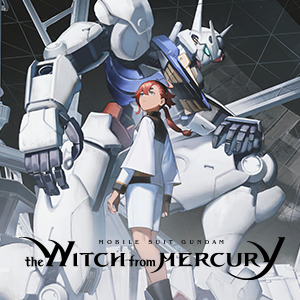
3 notes
·
View notes
Text
*sigh* Television is exhausting this week.
At least Lower Decks is funny. And one day maybe they'll actually release Wheel of Time season 2.
According to the Irish Times, in the new Lord of Rings series on Amazon, the Hobbits are Irish charicatures and the Dwarfs are Scottish charicatures.
It also notes that the Men have Lancashire accents while the Elves are Upper Class British, commenting that "Somehow the Victorian caste system has been smuggled into a 21st-century American fantasy series."
38K notes
·
View notes
Text
Streaming Services
I barely watch Netflix. Between that fact and the whole transphobia thing, I probably wouldn't have Netflix if not for one of my housemates loving the foreign horror and sci-fi shows they have. I liked She-Ra and Carmen Sandiego. She-Ra was kind of life-changing. But it's been years since anything they've done has really grabbed me, and the company is being extra-shitheelish these days even among media companies.
Crunchyroll is a must for me because I like anime, even if I kinda wish it wasn't because finding yuri content is impossible and they're dragging their feet on bringing the stuff from Funimation that I want to watch over.
Hidive needs more money to license more queer anime and put it in their queer anime category.
Hulu certainly exists.
HBO Max exists for me to watch old DC cartoons and Young Justice. I have words for Harley Quinn, which is both very good and very bad.
I had Peacock, but all I was watching was wrestling and WWE is very bad these days. So now I don't.
Amazon has Wheel of Time. Please don't fuck it up. It also is basically free since I, as a broke disabled girl, kinda need Prime to live, so they stay permanently.
YouTube likely gets most of my total viewing hours in spite of not being TV because in a world where most online stuff is done on phones portability is a huge plus.
I watch Twitch once a year for a few nights for Desert Bus for Hope. It's very good. I might write about it here when it happens.
Disney+ owns my childhood and has Owl House, and even that might not be enough to keep me subscribed another year. After how they've handled DuckTales and Owl House, I'm nervous to get attached to Disney shows because they'll murder them when they're amazing, popular, and still have lots of stories to tell.
Paramount+... wow. I'll be honest, this is kinda the dark horse among streaming services. Their app on both the TVs I use sucks a lot. Their Android app sucks a lot. They make bad software.
But every other streaming service is lucky to have one active show at a time that is seriously engaging me. Paramount+ has seven. All five ongoing Trek shows (it feels like Short Treks is over), Halo, and the iCarly relaunch all have me pretty well hooked. Of all the streaming services I have, Paramount+ is the best value for money even with their shit apps, and it isn't close.
I expected Paramount+ to be just Star Trek. It hasn't been, and I am delighted.
#streaming services#streaming#netflix#she ra and the princesses of power#she ra#carmen sandiego#hulu#crunchyroll#yuri anime#hidive#hbo max#dc comics#young justice#harley quinn#peacock#wwe#amazon prime#wheel of time#wheel of time amazon#wheel of time prime#youtube#twitch#desert bus for hope#disney#disney plus#disney+#owl house#ducktales#paramount plus#icarly
5 notes
·
View notes
Text
Strange New Worlds

Since this is the next show I’ll be posting an episode-by-episode of, it seems like the right one to talk about next.
Star Trek has been an integral part of my life for my entire life. My conservative Christian parents had grown up watching it, and by the time they went full-on fundamentalist it was still one of the few pieces of secular and progressive media they would let me consume without looking askance at me, without telling me I was endangering my soul and my future. Them doing that wouldn’t have stopped me... I’d loved it longer than I could remember, as far back as before TNG happened when TOS reruns and occasional TV airings of the movies were all the Trek there was available (I didn’t learn about the animated series for a long time after that), and it already formed a lot of my vision of myself.
Twelve years without Star Trek was... hard. It really was. In the time Trek was gone from television, Hurricane Katrina happened, destroying my home and utterly changing my life. My mother died, with the huge mix of emotions that brought. We elected Obama to the Presidency, then Trump happened to us. We made immense progress toward the kind of world Trek helped me imagine, and we receded back from that progress.
But that particular part is for my talking about Picard, since... the second season of Picard is really about that.
That and trauma, but Picard is always about trauma.
But what I’m getting at is that we needed Star Trek and we didn’t have it, until Discovery showed up in 2017, exactly when our need for it was greatest. The producers couldn’t have known how badly we would need it then, when they started the yearslong process of developing a new TV series and relaunching a decades-old franchise, but their timing was perfect.
I want to talk about Strange New Worlds, but you can’t talk about Strange New Worlds without talking about Discovery’s first two seasons, because they brought us to Discovery. Them, “The Cage,” and “I liked Star Trek before it was political.”
That last one is a post on its own, to talk about the conservative attack on media analysis, but I’ll just put the headline here: Star Trek was political from the word go. Lucille Ball was political. Gene Roddenberry was political. “The Cage,” the first episode of Star Trek produced, was brazenly political (and horny). The original Star Trek was political, all the Berman-era shows were political, and the new shows of the Kurtzman era are political, because Star Trek has always been political, has always been progressive (if occasionally very bad at it), has always opposed racism and misogyny and nativisim and nationalism and fascism. Star Trek is political.
Ahem. Discovery.
Discovery’s big thing is that it is basically a new show every season, with the same cast growing through the wild adventures they have. Its first season was about a group of good people being corrupted, manipulated, abused, and used as tools by a monster of a man. I don’t feel much need to avoid spoilers for a years-old story that has already been spoiled, but... Captain Lorca is not the good guy in Discovery’s first season, and his evil hurts the people around him on both personal and galactic scales. It leaves them vulnerable, unwilling to trust, tied strongly to each other but ready to lash out at anyone who wasn’t there in the thick of it with them. Lorca built a family then betrayed that family, and while he died for it, the pain he caused lived on after him.
Picard is directly about trauma, but basically all of modern Star Trek is about trauma.
Season 2 of Discovery brings us a new captain. Christopher Pike, who had previously been the main character of original Star Trek pilot “The Cage” in 1965, who had shown up horribly wounded in first-season Star Trek episode “The Menagerie,” was transferred to the Discovery to command them in seeking answers to a new mystery. The shape of that mystery matters, to Discovery, but less so to Strange New Worlds. What matters is that Pike joined that wounded, broken family that Lorca built and shattered, and, by virtue of his virtues, became a part of it. He was everything Lorca was not - honest, brave, righteous. Good. And he and his friend Spock became brothers to the crew of Discovery, to the point that watching them separate - Discovery off to its new setting, Pike and Spock to the Enterprise and this new show - was painful.
And so now we reach Strange New Worlds. The other post-Discovery Trek shows - Discovery, Picard, Lower Decks, Prodigy - are heavily serialized to one degree or another, each season telling a story that the individual episodes exist primarily to serve. This isn’t a bad format - it’s the format that created prestige television, after all, that convinced the networks that it was worth investing in making good shows because people would watch good shows and pay for the privilege - but it can be exhausting. But the adventures of Captain Pike and the Enterprise are episodic, and that is delightful and relaxing. Each week, I sit down and see a very good Star Trek story.
I might do posts later about some of the characters, or I might talk about them as I introduce them in my episode breakdowns. I’ll just say this now, though: I’m very much looking forward to getting to know them all better, but especially Uhura and Noonien-Singh. And this version of Nurse Chapel is a delight.
I feel a need now to apologize to J. J. Abrams. After all, through the twelve years that Star Trek was gone, he was... making Star Trek. But Trek is a television franchise first and best, and the Abrams films... are Trek films. The movies have always been of variable quality (and the Abrams films sit mostly on the better end of them - people will complain frequently about them, but even the worst of the lot is better than the truly bad TOS and TNG films), but they’ve never really captured that ineffable Trekness the TV shows do so well. Not even the best of them - The Undiscovered Country, First Contact, The Wrath of Khan - quite land that Trekness, so what chance did Abrams have? Trek movies are a way to get a little more Trek, but they’ve never really filled the space in my life Trek TV shows do.
All that said...

#star trek#star trek strange new worlds#strange new worlds#captain christopher pike#christopher pike#star trek discovery#discovery#michael burnham#spock#number one#una chin riley
8 notes
·
View notes
Text
On the subject of Wheel of Time...
I will be immensely annoyed if Amazon manages to wreck this show by holding off on season 2 for long enough people lose interest.
5 notes
·
View notes
Text
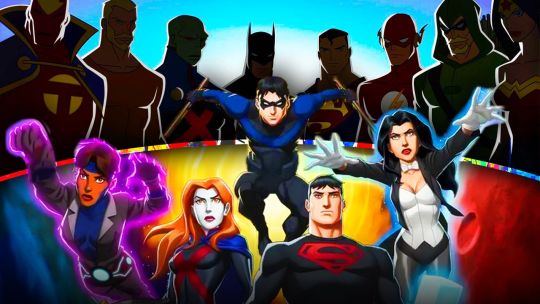
Young Justice breaks one of the most important conventions in superhero stories, and in doing so becomes one of the best superhero stories I have ever seen.
Superheroes don't age past a certain point. Kid sidekicks sometimes grow up, legacy heroes occasionally (though almost always temporarily) take up their mentors' mantles, but superheroes exist in a permanent now where any signs of aging out of young adulthood will inevitably be rolled back in the next reboot or event book or deal with the devil to save the life of their aunt.
Breaking out of this, showing a group of young heroes making it into adulthood, building families, becoming the people they want to be, is the key to the success of Young Justice. Some of the heroes we started following as teenagers have children of their own now. Some are married. Some are widowed. Most have jobs. We have seen these people grow up, be replaced as the young generation by a new crop of teenagers who they are tasked with training.
It's not a perfect show. There's entire essays to write about representation, particularly involving queernees in season 3 and autism in season 4, which I will almost certainly write and which will be... not full-throated condemnations of their work, but not exactly flattering either. It is obvious that the people making this show are putting in not just the work but some amount of research.
Which makes it hurt when it misses the mark.
Still, it's a great show. Truly great. Its fourth season is drawing to an end soon, so I'm not going to get to cover it as much episode to episode, but I look forward greatly to each as it comes.
14 notes
·
View notes
Photo

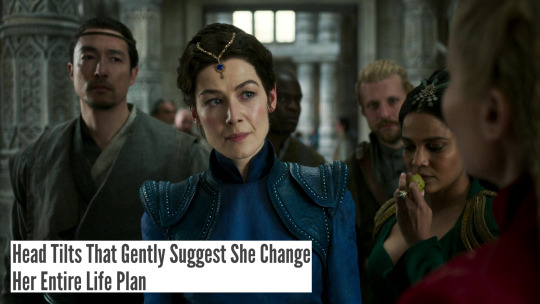
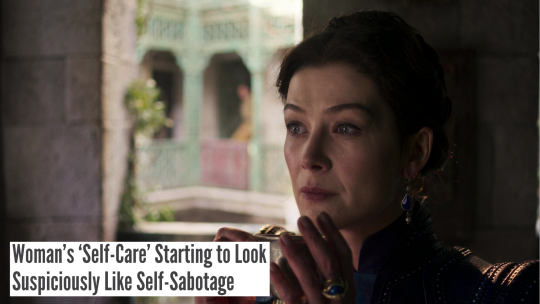
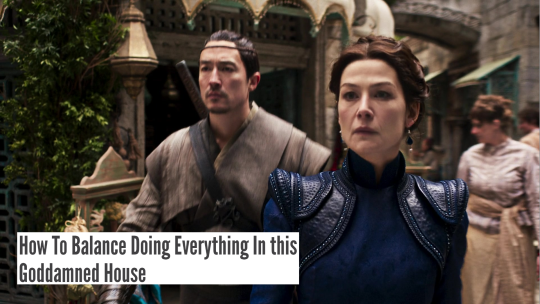
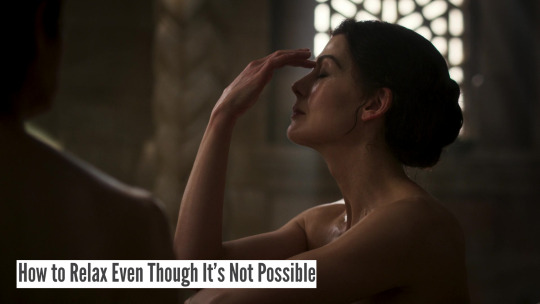
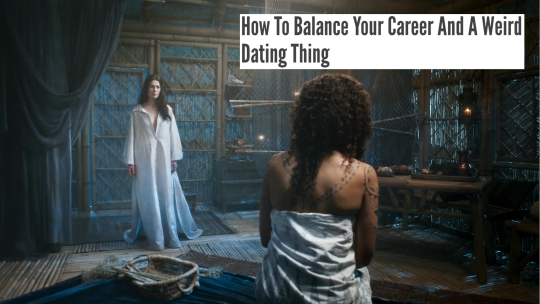
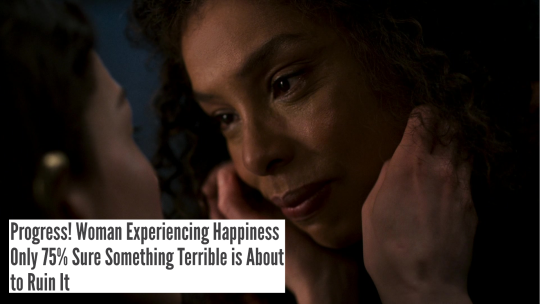
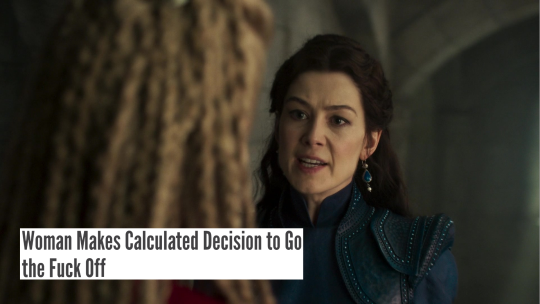
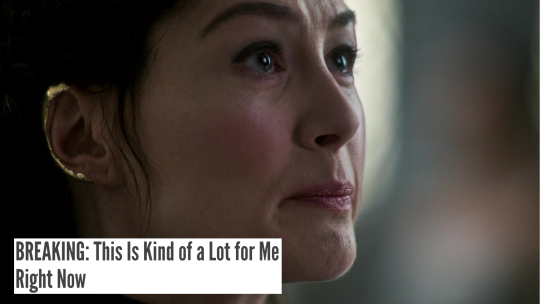
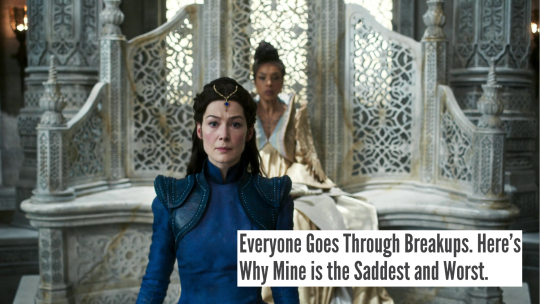
1x06 the flame of tar valon + reductress headlines
2K notes
·
View notes
Text
Why The Show Is Better

I like the Wheel of Time show better than the books.
This isn’t because I dislike the books. I love them. Wheel of Time was a constant companion to me through some very hard times. Part of what got me through Hurricane Katrina was knowing I’d be able to pick up a copy of Knife of Dreams in a few months, and I read the entire series more than once. Given its length, that is commitment. That is love.
But Wheel of Time has... issues. The pacing is the most talked-about one - even before Crossroads of Twilight spent 704 pages on reactions shots, the progress of the plot had slowed to a subglacial pace. Jordan got far too invested in showing us every single detail of the admittedly amazing world he had built at the expense of the actual story that world existed to tell, and that hurts the books far more than I could describe.
But it’s not the worst thing about the books.
Jordan can’t write women. I say this in spite of some of the women in the books - Moiraine, Elayne, Min, Siuan, Nynaeve, and especially Egwene - being some of my favorite characters in literary history, and there is no contradiction there. When those characters are being people, they are wonderful and fun and engaging and just an absolute joy to read about. But when Jordan tries to write them as women, with the fact that they are women foremost in his mind, they immediately recede to being two-dimensional caricatures. Nynaeve becomes a braid-tugging annoyance elemental, Min a parody of the Not Like Other Girls trope, Elayne a boy-obsessed floozy. All of these things exist in contradiction to their portrayal when they are shown as people.
This feeds into a larger issue - Jordan can’t write interactions between genders. He’s already coming in from a very gender essentialist position, which... I’m trans. That’s a losing place to start with me. But it gets worse from there, with every single member of gender A thinking of every single member of gender B as an incomprehensible cipher whose behavior is beyond mere mortal understanding. The one pair of people who are an exception to this - Lan and Moiraine - are probably the most interesting different-sex pair to watch interact because their dynamic is defined by who they are as people instead of Man No Understand Woman Woman No Understand Man. I love Lan and Moiraine.
Throw in the twin facts that Jordan is just not great at writing romance generally and that the books treat queerness as something to grow out of, and every single romantic relationship in the books is plagued by these issues. In scenes dealing with romance, when characters should be at their most open, they are instead their least themselves. The best romance in the series, Nynaeve/Lan, works because it happens mostly offscreen and they manage to have chemistry despite the issues in the writing when they manage to spend time together on page.
Characters whose role in the series is defined by their romantic relationship to a more significant character - and these are almost all women - get it the worst. Faile, in particular, is just difficult to read about.
Contrast this with the show. The show is perhaps a bit too briskly paced, but it’s way closer to ideal pacing than the books are. Its women are just people. Its men are just people. They interact, love, hate, and have sex like people instead of a set of mutually indecipherable ciphers. Many of the best scenes are romantic, or are intimate in ways that don’t need romance. Moiraine and Siuan being all the way queer and in love makes their relationship hit so much harder than it does in the books. Lan and Nynaeve are an utter, absolute, complete joy to watch. Rand and Egwene are immense fun, and their going separate ways has so much more in terms of stakes than it did in the books.
That’s not to say the show doesn’t have problems. I’d love to have seen more of the Two Rivers (every genre show needs its own Short Treks). “Perrin has a wife oops she’s in a fridge now” was a hamfisted way to start his “hammer or axe” arc. While I get why they skipped certain stuff, I desperately wanted to see Whitebridge and Caemlyn, to see the Green Man and Aginor and Balthamel.
But the show is better than the books.
77 notes
·
View notes
Text
Wheel of Time Audiobooks
I’m never going to recommend anyone read Wheel of Time because while I love it the pacing is bad and there’s way more book than story. But if you do decide to, I have the new version of the audiobook for Eye of the World with Moiraine actress Rosamund Pike reading it and I’m utterly delighted so far.
4 notes
·
View notes
Text
Coming Back to This
I’m coming back to writing about television.
I stopped because... well, honestly, because the content I was doing that got anyone to actually read it was all Buffy and Angel episode reviews and... well, the utter dreariness of Buffy season 6 and Angel seasons 3 and 4 broke me. They just broke me. Knowing what was coming at the end of that part of each show broke me even harder.
And, honestly, knowing what we do about Whedon now, and in particular about how he treated Charisma Carpenter while he was telling the story he was about Cordelia? I kinda never want to go back to those shows again. I’m going to keep in me the good I got from them, but... I’m done with them.
Thankfully, television is as good now as it has ever been! I don’t need to delve into the past, into my teenage and young adult years, to get shows I’m interested enough in to watch and write about. There’s a lot of bad TV, yeah, but there’s more good television than there’s ever been. Star Trek is running five shows actively, with at least one episode coming out every week, and I love them all. The Wheel of Time novel series was always a guilty pleasure for me - books I enjoyed the hell out of in spite of thinking they had really serious flaws - but the show takes what I loved about them and expands on it while mitigating most of the flaws. I’m enjoying Halo, though I’m a few episodes behind. I was never a fan of the original iCarly - I was definitely aged out of it being something relevant to me well before it started - but I watched some YouTube videos about it with my fiancee and we decided to pick up the relaunched show and are having way more fun with it than I thought was possible with a laugh-track sitcom in 2022.
And there’s anime to watch.
So I’m coming back to this. To writing about television. To sharing my love of TV with the people who want to share it with me. I’m going to talk about things I enjoy, probably at length, and use that to enhance my enjoyment of them. Maybe I can help enhance your enjoyment too.
#Buffy The Vampire Slayer#angel#television#wheel of time#wheel of time amazon#star trek#star trek picard#star trek strange new worlds#icarly#star trek discovery
6 notes
·
View notes
Text
Invasion
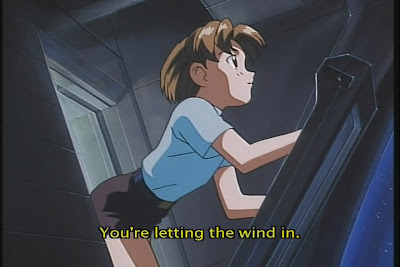
Crest of the Stars is based on a trilogy of Japanese science fiction novels by Hiroyuki Morioka. These novels essentially resurrected the then-dead genre of sci-fi in literature in Japan, and they’re considered very influential. This is a work of relatively-hard military science fiction, though it occasionally falls into the absurd.
Unfortunately, the anime is rather difficult to watch now - it’s been out of print on DVD for a while, with Bandai showing little interest in reissuing it, and it hasn’t been picked up by any of the streaming networks. Still, if you manage to find a copy, it’s very much worth watching. This is anime science fiction at its very best, and the visuals and drama are breathtaking while the characters are charming.
Without further ado, I present Crest of the Stars.
1. The episode opens with a scene set in the month of Closna, second day, Imperial Year 952. This scene is performed in unsubtitled Barohn, the language of the Abh Empire. A ship is entering battle, firing torpedoes into planespace. We see the sensor readout of the enemy, with three of the four torpedoes hitting and destroying targets. But they are still badly outnumbered. The captain gives an order, and the ship turns its main gun toward a hole appearing in space. They fire the main gun, and the scene ends.
2. “Long ago, when the star system known as Sol was the only home of mankind, unusual particles of great mass and energy were discovered. However, nobody knew what the source of that energy was. Maybe it was a white hole. Or perhaps something from a different dimension or space. One theory was that a hole opened in the wall that separates this universe from another. These theories were no more than superstitions, falling far short of being hypothetical. Yet research on the use of this energy continued. Eventually, this new energy sourse allowed humans to emigrate beyond the Sol system. Humanity then spread across the whole galaxy.” That bit of narration is in subtitled Barohn. We are shown the Uanon Propulsion Interstellar Immigration Vessel, Leif Erikson. It explodes in orbit of a planet. Opening theme, which is EPIC and shows images of star-forming nebulae.
3. “The Landing. Day 57, First Season, Year 172.” Crest of the Stars pays a lot of attention to places and cultures. The opening scene was aboard an Imperial ship, so it used the Imperial calendar; this new scene is on the planet Martine, so it uses the local calendar. Where the Leif Erikson was, there’s now a hole in space, and a ship just emerged from it. We’re looking at the system defense control room. The ship hasn’t responded to communications, so they’re sending one of their defense satellites to engage with it. The satellite fires a few laser blasts and does no damage, then the ship fires back and destroys it easily. A bureaucrat in the control room drops his coffee mug to the floor, and it shatters. These people are fucked.
4. There’s somebody looking out a window and giving orders on the phone. This is the President. He tells them not to mention the failure of the planetary defense system until after the investigation.
5. A child is outside, looking up at the hole in space. He’s narrating for us, telling us the name of the planet and asking if he ever missed it. A woman tells him not to open the window, because he’s letting the wind in. A fleet is coming out of the hole in space. As each ship emerges, a bubble of energy fades from around it. That’s hundreds of ships. We’re now on the bridge of the command ship, where a blue-haired man is being told that they are entering the sord - the hole in space. His attache says that he looks troubled; he says that this is work that is far short on glory. The ship enters the sord and emerges in normal space in orbit of Martine.
6. I’ll get the physics of FTL flight in this setting out of the way now so I can talk about them without explaining things bit by bit as I go. The uanon particles that produced the energy were, in fact, gateways to another dimension, and drew their power from that dimension. When left idle for long enough - when nobody used their energy - they would explode, forming a sord. So when early starfaring humanity used uanon-powered ships to colonize the galaxy, they brough with them the key to creating FTL travel among colonized worlds. The uanon-powered ships were either generational ships or sleeper ships. The universe the uanons drew power from is called planespace, and it’s two-dimensional. To enter planespace, a ship projects a space-time bubble around itself. Within this bubble, physics work the same way they do in normal space, and the bubble itself can “roll” along the surface of planespace. Since planespace is “smaller” than normal space, a ship can cross vast distances quickly, but if its space-time bubble were to fail, it would immediately be subjected to the physics of planespace and destroyed, because normal matter can’t exist in planespace. Now that’s out of the way.
7. “The Landing. Day 81, First Season, Year 172.” So 24 days after Martine was discovered by the scout ship, the Imperial fleet has arrived. There is an evacuation order in place for the capital, and people are running and being told to follow instructions from officials. Evacuations are… hectic… things, especially when it’s a whole major urban area being evacuated. They’re being sent to shelters. The woman from before is looking for the boy, Jinto, who has gotten lost in the crowd. The government is deciding what to do about the fleet, which has identified itself as coming from the Humankind Empire Abh. Its name is more grandiose in Japanese, and even more grandiose than that in Baronh, so I’ll be saying “Abh Empire” or just “Empire” most of the times I refer to it. The government is trying to negotiate with the Abh, but the Abh have rejected the offer and will be making an announcement. Jinto is running through the streets, and he looks up to see the lights of the Abh fleet.
8. A bureaucrat has entered the Presidential residence. He’s pretty senior. He has a top secret briefing book, “The Report on Former Transmission Record: The Mankind Reich ‘Abh.’” That’s printed on the book in English. Given the attention paid to language in this show, that makes me think the people of Martine speak English. The use of “Reich” as the translation for “Empire” is an interesting choice, don’t you think? Someone else points out that the commander of the Abh fleet is a diplomat as well, and the Crown Prince of the Empire. The senior bureaucrat asks what he’s like; the guy speaking says not to be surprised when you see him. A woman says he’s nothing to be concerned about, because he looks like a harmless elf. And the commander calls.
9. Elf, yes. Harmless, no. This is a face that means business. The woman says that the Abh never get old, are all beautiful, and claim to be descended from people from Earth. They just adjust their genes. The Abh commander says that his will and that of the Empire are the same, as far as the people of Martine are concerned. The system will be surveyed by the nobility, with the Emperor being their lord until a noble is chosen. The Emperor is busy, though, so a magistrate will be appointed. A magistrate who will also have little interest in the planet. “In any case, a ruler or magistrate normally does not get involved in the details. The reason for this is that we feel that governing your world is the furthest thing from being elegant.” The senior bureaucrat is understandably angry about this - after all, not only are they being conquered by an invader they can’t touch; they’re being conquered by an invader they can’t touch and who doesn’t actually give a fuck. They’re mobilizing the military, but the Abh say they won’t hesitate to destroy the planet. The Empire spans more than 20,000 systems. People don’t believe that the Abh are as powerful as they say they are, but the fleet in orbit has more ships than Martine has missiles. The President remembers how easily the Abh destroyed the defense satellite. Everyone is looking at him. He is President Rock Lin, and he has made a decision.
10. But first we go back to Jinto, who’s trying to get into his house. He has to use the override on the door, which involves climbing on a trash can to reach the override handle. No, wait… not in. Out. He’s watching the Abh ships fly by overhead, streaks of light above the atmosphere, energy erupting from the sord. Very pretty image. The whole Abh invasion has a beauty to it that’s hard to describe. Admiral Abriel orders his ship into a lower orbit. “I had no idea, back then, on that day…”
11. “The Landing, Day 87, First Season, Year 172.” Almost a week since the Imperial fleet arrived. President Lin has surrendered to the Abh Empire. Seven years later… Jinto, now a teenager, is on a space station. He’s riding an elevator, while a shuttle arrives. He’s in Abh clothes. People are looking at him like he’s terrifying, but around him, life is happening. He’s been on the station for seven years. We flash back to him as a child on Martine.
12. The senior bureaucrat from before is Teal Clint, and he just found Jinto staring at the Abh fleet. He’s been looking for Jinto. Jinto apologizes, but Teal yells at him and tells him to come. They’re going to the President’s palace, which Jinto refers to as “My father’s place.” So he’s the President’s son. Jinto runs after Teal, who is angry. Jinto asks if Teal is angry at him. They’re in an elevator now, going to a car. Jinto asks if they can beat the Abh, but Teal says there’s no war. Jinto asks if they’re surrendering; Teal punches the wall and says yes, Rock decided to surrender. Or sold the planet out. He made a deal with the Abh, a bad deal. Teal is very angry about the deal, in spite of being in favor of surrender. He apologizes for taking his anger out on Jinto.
13. They’re in a car now. There’s going to be an announcement about the deal, and everyone will find out about Rock’s deal and how he betrayed Martine. That’s why Jinto has to hide in the Presidential residence. People are going to be angry, and might throw rocks at Jinto, or beat him up. Or bomb his window. Jinto is worried about Rinna - Teal’s wife - because lots of people know he lives with Teal and Rinna. Teal says he contacted Rinna and she’ll be able to take care of herself. She’s already evacuated, but was worried about Jinto. Nobody can know about the deal until the announcement. “Not even me?” Jinto asks. “Well, well, already acting like a member of the privileged class,” Teal says. Jinto asks what Teal means; Teal tells him to turn on the holo. It’s a news broadcast. The announcement is in one minute. “It was a very long minute.”
14. Teenage Jinto on the space station, trying to smile nicely to an old woman. The old woman is having none of it. She’s staring daggers at him. The shuttle docks. Its docking port opens, and a very pretty Abh woman in a military uniform emerges.

15. It’s the announcement! We get the full name of the Abh commander, “Lord Dusanyu, Prince Abriel Nei Limzale Balke.” The deal was to allow the citizens of Martine to use the Abh star lanes for trade and travel, and to promote someone from Martine to the nobility as the ruler of the planet instead of bringing in an Abh noble from outside. They also handed over the codes to the space defense system. Teal thinks that means the Abh were worried about their defenses. People are asking who the new ruler is. Teal says everyone already knows, but they want it spelled out. Jinto asks if it could possibly be true. “All right. It’s who you think it is. Rock Lin will rule our star system” Rock didn’t even consult Teal, his executive secretary and best friend, about the deal. People are angry and demanding to know where Lord Lin is; they are told that Rock is on an Imperial ship heading for the capital to be granted his title formally. Teal says that’s why the announcement was delayed. Jinto wonders if Rock will return; Teal says he couldn’t return if he wanted to. He thinks the Empire will have him killed, and that it serves him right. So that makes Jinto next in line as lord. Now he’s being mean because he’s angry and betrayed and the actual target of his feelings isn’t there but a small child connected to that target is so he can feel better but also guilty by taking his feelings out on the child. Jinto is crying, and Teal apologizes and says he’s having a hard time keeping control of himself. Jinto asks if, when Teal told Rinna to evacuate, he told her about the deal. Teal didn’t, because it was a secret. “That day, I lost my home. My home, and perhaps my family as well.”
16. Teenage Jinto on the deck of the starbase. He came to this place t o learn about the Abh - their language, their culture. He’s now on his way to the capital to attend military school, but he’s never met an Abh. This will be his first time. Episode end; closing credits with pictures of Jinto growing up. It’s clear that Jinto was far closer to Teal and Rinna than to his own father… all his family shots are of the Clints.
Overall: There’s so much I love about this show, but I think for now I’ll talk about the visuals. It’s actively beautiful - maybe not in the quiet almost-watercolored way Sweet Blue Flowers is beautiful, but beautiful nonetheless. It’s grand, and sharp, and hard in most places. Hard enough that, when it’s soft - Jinto’s face, Rinna’s posture, the Abh girl’s economical grace - that really stands out. And the Abh fleet shots - both from space, where we can see the dark ships against the blackness of space, and from the ground, where the ships and their shifting formations look almost like dancing meteors in the night, show just how lovely hardness can be.
Martine, meanwhile, is such a… mundane… place. They have planetary defense satellites and laser cannons, but they also drive cars that would have, apart from the holo terminal and windshield HUD, looked at home in the 1960s. To give Martine those visuals while putting them opposite the Abh drives home just what the Abh are. We know little about their culture, this early, but we know that they are both wondrous and monstrous.
Which is driven home by the way people on the space station regard Jinto, in his Abh clothing. He looks a bit odd in it, like a toad one day donned a suit and went to work at Goldman, but simply dressing like an Abh marks him as one of them. As one of those genetic gods who bring disaster wherever they go.
But that’s worldbuilding! I’ll talk about worldbuilding on another entry.
0 notes
Text
My Euphonium
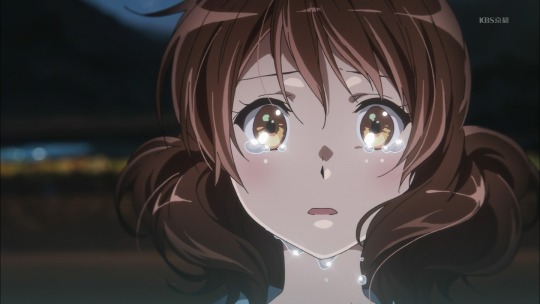
We’re wrapping up the first season of Sound! Euphonium now. Next to last regular episode!
1. Previously On, then opening credits.
2. After “Doublemeat Palace” and before “Waiting in the Wings,” which is also about mistreated labor, I urgently need this.
3. They’ve been practicing constantly. Now Taki adds the euphoniums to a part being played by the contrabass. It’s a very difficult part.
4. Kumiko and Asuka are at sectionals. Asuka is playing the section. Wow, her fingers dance. Kumiko is giving the section a try. She’s stumbling through it a bit. She’s going to go practice by herself. She has Tuba-kun on her hankerchief. Wow, she’s having a hard time with this section. Reina joins her, and her playing immediately improves. Kumiko tells Reina that she wants to be special like her; Reina says she’ll have to become even more special. Kumiko blushes. We get more of Kumiko practicing. Kumiko’s nose is bleeding. She’s missing ensemble, and is in her gym clothes because she bled on her uniform. She just downed a whole bottle of water. She wants to go practice more. Hazuki is impressed by how determined she is. She says she wants to improve more than she did before. That she was inspired by Reina at the second audition. She has a feverish desire to improve.
5. Shuichi is playing trombone at the river. Kumio is playing euphonium on the other side. Then we see Kumiko walking home and running into Aoi, who’s on her way to cram school. Aoi is asking if Kumiko thinks they’ll make nationals; Kumiko doesn’t know but says they’re much improved. She asks Aoi if she regrets leaving; Aoi says she doesn’t because entrance exams were more important, and she didn’t have a reason to stay.
6. Kumiko’s sister is home and doesn’t want her playing the euphonium. Kumiko has flashbacks about her sister and Aoi leaving band. Then she starts playing.
7. Ensemble practice is happening. It sounds great! Taki says they’ve gotten better but aren’t at the sound they need. He asks which trombone missed the entrance; Shuichi raises his hand and gets chewed out. Now they’re on the hard section. They play a bit and Taki stops them. He asks Kumiko to play the section on her own. She’s stumbling again. Taki stops her. He asks her if she can play that bit at the performance. She says yes. He asks again; she says she can. They start to play again.
8. Kumiko is practicing alone, and telling us about how she knows how to play this section. She just can’t do it, and it’s frustrating her. She stops for a moment, and Reina gives her water. Yay, she won’t get a nosebleed this time. Now they’re playing together. Reina’s play is flawless; Kumiko is stumbling. But it’s beautiful.
9. The trumpets are talking about Kumiko’s trouble. Reina says she wants to say something. She apologizes for how smug she was. Kaori apologizes in return. Yuuko blushes, then gets in a fight with Natsuki. It’s ten days until the competition. Midori is bandaging her hand. Kumiko has improved a lot. Kumiko is sure she’ll make it if she keeps practicing. The ensemble is getting instructions. They’re at the section again. Taki stops them. Gives instructions to trumpets and horns. Then tells Asuka to play the section alone. Kumiko looks poleaxed. They’re now playing without her. “We’re at war to make it to the Kansai competition.”
10. Midori and Hazuki are asking Kumiko out to eat. She’s leaving her euphonium, and forgot her phone. Now they’re eating bread. Midori says Kumiko reached for the moon. Kumiko is thinking about how it felt to get cut out of playing that section. She’s walking faster, thinking, “I want to improve,” over and over. And running. And crying. “I want to be better than everyone.” She slows down and leans against the railing of a bridge. She screams, “I want to improve!” at the sky. Shuichi shows up on the other side of the road and asks her what’s up. She screams those same words at him. He screams, “I want to improve too!” She’s crying and throws herself at a post. “I’m so upset. I’m so upset, I could die.” Those are the words Reina said in the prologue, when they failed to advance to regionals. “That’s when I realized how much it hurts. I realized how Reina felt back then.” She smiles a little, under her tears.
11. She’s laying diagonally across her bed, feet off the side. Her sister walks in and complains about the heat and invites her to dinner. Asks her about her study. Kumiko isn’t emoting at all. Now she’s pissed, and yelling about liking the euphonium. She sits on the bed and looks at herself in the mirror and whispers, “I like the euphonium.”
12. Kumiko went back to school to get her phone. She met Taki there. He’s getting yelled at by the vice principal for making them practice so much. Kumiko is asking Taki about his family life - his father, the conductor. His father was band advisor at Kitauji a decade ago. He says he enjoys doing this job. Kumiko has a revelation that’s hard to describe, and starts to leave, and Taki tells her to keep practicing that section for the regional competition.She has her phone now, and a lot of messages from Reina. She calls Reina and asks to meet up.
13. She’s telling Reina about her meeting with Taki, but gets sidetracked when the capsule machine has Euphonium-kun. She’s very happy and Reina is very confused, and the episode ends.
Overall: Reina and Kumiko playing together is the lasting image of this episode, but it simply reinforces what we know about them from “Festival Triangle” and “Welcome Back, Audition,” though it does so in a new and very pretty way. Seriously, this has a moment of symphonic music being played in a way that’s both technically inept and utterly beautiful, and that alone is worth the runtime of the episode.
Taki and Kumiko’s conversation is more enlightening. It tells us a bit about Taki - that he remembers Kumiko saying she would be able to play the part, that he wants her to do so. That there is kindness under all that business and ruthlessness. It humanizes him in a way the show hadn’t really done up until now.
Asuka, too, is humanized here, with the stricken expression and momentary delay between Taki’s instruction to her to play the section alone and her response to him.
Shuichi and Kumiko yelling across the street is one of the few moments when I almost believe there being chemistry between them. In the light novels, the two of them eventually date; I don’t think I’m spoiling much by saying that’s not the case in the anime, where they have few scenes and even less chemistry. That scene is also one of Shuichi’s strongest moments overall so far in the series.
But the big scene here is Kumiko and Reina outside the school, playing that section of the piece. Everything else works around that.
1 note
·
View note








